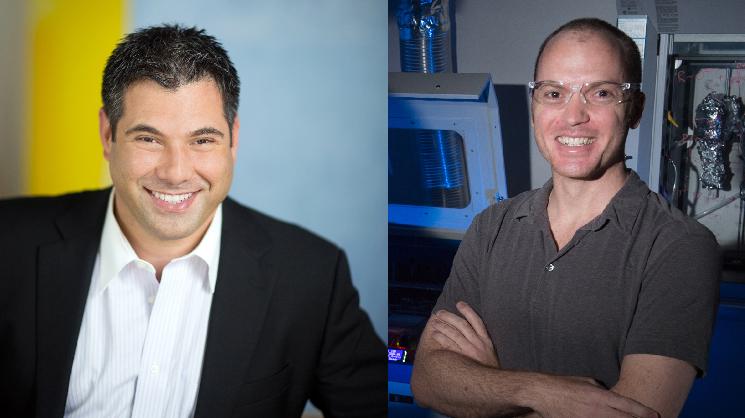New research between Rice University bioengineers Omid Veiseh and Jordan Miller combines cell-based therapy applications with sophisticated 3D-printed technologies for use in Type-1 diabetes therapies.
The work is possible through a new exploratory research grant by the JDRF, the leading global organization focused on Type-1 diabetes research.
“Pancreatic islet transplantation is an established experimental therapy for the treatment of Type-1 diabetes. But, the cascading effects of body’s immune response system, and the production and storage of robust islets from donors remain as powerful obstacles,” said Veiseh, an assistant professor of bioengineering.
To address these challenges, Veiseh and Miller will use the JDRF grant to fabricate and test 3D-printed hydrogel chambers that house pancreatic islet cells and an underlying vascular network. The two-component macrodevice system, designed to mimic pancreatic microenvironments, is expected to open new doors for the long-term production of pancreatic islet cells that control glucose levels without patients having to take immunosuppressant drugs.
“As a new addition to the JDRF beta cell replacement portfolio, we are excited to add emerging 3D bioprinting approaches to enhance vascularization and function of implanted beta cells,” explains JDRF Research Director Esther Latres. “3D bioprinting has the potential to advance efforts in combinatorial approaches that are scalable and automated in order to develop therapies that will serve all T1D.”
Prior to joining Rice in 2017, Veiseh worked as a postdoctoral research fellow in Professors Robert Langer’s and Daniel Anderson’s laboratories at MIT and Harvard Medical School developing encapsulation materials that protected implanted islet cells from the immune system, yet allowed the cells to grow, sense and respond to environmental changes. The program was funded in part by JDRF.
The discoveries at MIT helped catalyze the launch of a new biotechnology company, Sigilon Therapeutics, a company Veiseh co-founded in Cambridge, Mass. that is committed to commercializing and translating these discoveries to the clinic.
Veiseh says implanted biomaterials naturally lead to foreign body responses, which consist of inflammation and wound-healing processes, such as the development of fibrosis scar tissue.
“A key step on the path to facilitating more biocompatible and robust microenvironments for maturing greater yields of cells is in the islets’ microvascularization that support life-sustaining levels of oxygen and nutrient transport,” added Miller, an assistant professor of bioengineering, who has studied vascularization in tissue engineering for 15 years.
For this project Miller will introduce new 3D printing approaches through the use of a low-cost stereolithography system developed by his lab.
“Our 3D printing system will enable the construction of semi-permeable cavities for seeding an alginate hydrogel with entrapped islet cells, which shield the maturing cells from the foreign body response and promote engraftment processes as vessel networks form between host and graft.”
Upon the completion of this project, the duo hope to set the stage for future research in the use of encapsulation materials to fight Type-1 diabetes, and opportunities to develop and scale islet production for wide-spread clinical application.
About JDRF
JDRF is the leading global organization funding type 1 diabetes (T1D) research. Its mission is to accelerate life-changing breakthroughs to cure, prevent and treat T1D and its complications. To accomplish this, JDRF has invested more than $2 billion in research funding since its inception. JDRF is an organization built on a grassroots model of people connecting in their local communities, collaborating regionally for efficiency and broader fundraising impact, and uniting on a national stage to pool resources, passion, and energy. JDRF collaborates with academic institutions, policymakers, and corporate and industry partners to develop and deliver a pipeline of innovative therapies to people living with T1D. JDRF staff and volunteers throughout the United States and our six international affiliates are dedicated to advocacy, community engagement and its vision of a world without T1D. For more information, please visit jdrf.org or follow on Twitter: @JDRF.

